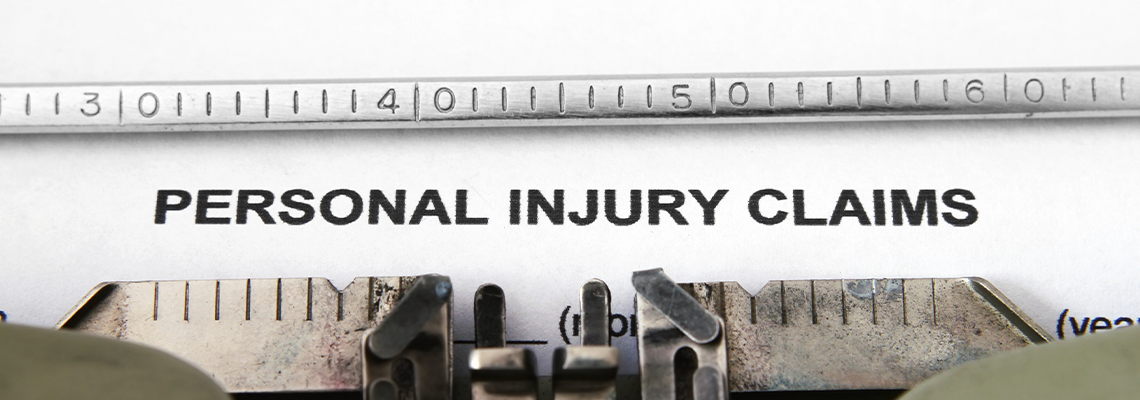If you suspect that your loved one isn’t receiving proper care in a nursing home or care home facility, it's common to experience significant stress, worry, and uncertainty. Unfortunately, nursing home negligence does occur, and it can take many forms, including physical harm, emotional abuse, improper medical treatment, medication errors, or substandard care.

How Do Pre-Existing Medical Conditions Affect a Personal Injury Claim?
If you’ve been injured in an accident that wasn’t your fault, you may have grounds to file a personal injury claim against the at-fault party. However, doing so takes a lot of work such as presenting multiple pieces of evidence that clearly show how the accident caused your injuries. Even if your case is cut and dry, this will take some expertise. In many situations, some accident victims may be asking, “How does a pre-existing condition affect my injury claim?” While a pre-existing medical condition won’t preclude you from seeking compensation, it will require a different approach.
If you’d like to consult with a personal injury attorney for help filing an insurance claim, call us at The Law Office of Steve Slough. We’re proud to help clients in St. Louis, Missouri, as well as those in St. Louis County, St. Charles County, and Madison County, Missouri, in addition to St. Clair County, Illinois.
What Are “Pre-Existing Medical Conditions?”
A pre-existing condition is any injury, illness, or condition that an individual has had before they sustained the new injury for which they’re filing a personal injury claim. There are numerous pre-existing conditions that can come into play in a case like this, but some of the more common ones we see include:
Arthritis
Herniated discs
Previously broken bones
Previous concussions
Traumatic brain injuries
Birth defects
Congenital abnormalities
Asthma
Diabetes
Fibromyalgia
Osteoporosis
Chronic back pain
Chronic obstructive pulmonary disease (COPD)
Any one of these conditions has the potential to make a new injury more severe than it otherwise would be. For example, if someone is involved in a car accident who already has the medical condition of osteoporosis (when bones lose mass and density and are therefore more brittle and weak), they will be more likely to suffer major injuries. Someone without the disease may walk away with only minor injuries, while this victim may have many broken bones which require multiple surgeries and ongoing physical therapy. Both victims are due damages from the at-fault driver, and these should cover the full extent of their injuries, even if one ends up being much more expensive than the other.
How Do Pre-Existing Medical Conditions Affect a Personal Injury Claim?
It’s important to say upfront that you can still qualify for compensation from a personal injury claim even if you have a pre-existing condition. That said, your condition will affect how the claim is handled and the type of evidence and documentation you’ll need to present.
Because there are hundreds of possible pre-existing conditions, it’s impossible to predict exactly how one will affect (or be affected by) a new injury. In general, your existing condition may mean that your new injury is worse than it would have otherwise been if you didn’t have it. On the other hand, your pre-existing condition may be worsened or exacerbated by your new injury. Both these scenarios will certainly complicate any litigation you pursue, which is why it’s always in your best interest to work with a reputable attorney. You can’t be awarded damages for an injury or condition that existed before the accident, but you can seek damages for any new injuries or injuries that are now worse after the accident.
Key to this will be presenting thorough documentation of your condition before the accident to establish a baseline. This could include doctor’s notes, prescriptions, treatment plans, photographs, X-rays, medical records, as well as testimony from medical professionals who’ve treated you in the past. This will then be compared to new medical evidence that can clearly show the impact of the accident on your overall well-being.
It should go without saying, but you should always disclose any pre-existing conditions to your attorney at the outset of your case. If you attempt to hide or minimize your previous level of health, it can end up hurting your case.
“Eggshell Plaintiff”
One term used in cases like this is the “eggshell plaintiff” rule. You can get a good idea about the meaning of this from imagining someone with a skull as thin and fragile as an eggshell getting into a car accident. Naturally, you would expect someone with an “eggshell” skull to sustain far more extensive damage than someone with a normal skull.
This analogy is used to emphasize the fact that even when you have a plaintiff with an extremely delicate or weak condition, the at-fault party is still legally liable for paying damages. Essentially, it says that you can’t be punished by being denied compensation just because you happened to have a pre-existing condition at the time you were injured.
Fighting Hard for Your Rights
If you or someone you love with a pre-existing condition has recently been injured in an accident and is concerned about filing a personal injury claim, reach out to us at The Law Office of Steve Slough for help.
RECENT POSTS
When a product fails to perform safely or as intended, the consequences can be devastating. Victims may face serious injuries, permanent disabilities, or overwhelming financial losses, and defective product claims often involve detailed technical, scientific, and medical details that go far beyond ordinary knowledge.
Medical malpractice can be one of the most stressful and emotional experiences a person faces. When you or a loved one suffers harm due to a medical professional's mistake, the emotional and financial impact can be overwhelming. Filing a medical malpractice claim requires careful preparation and attention to detail.




